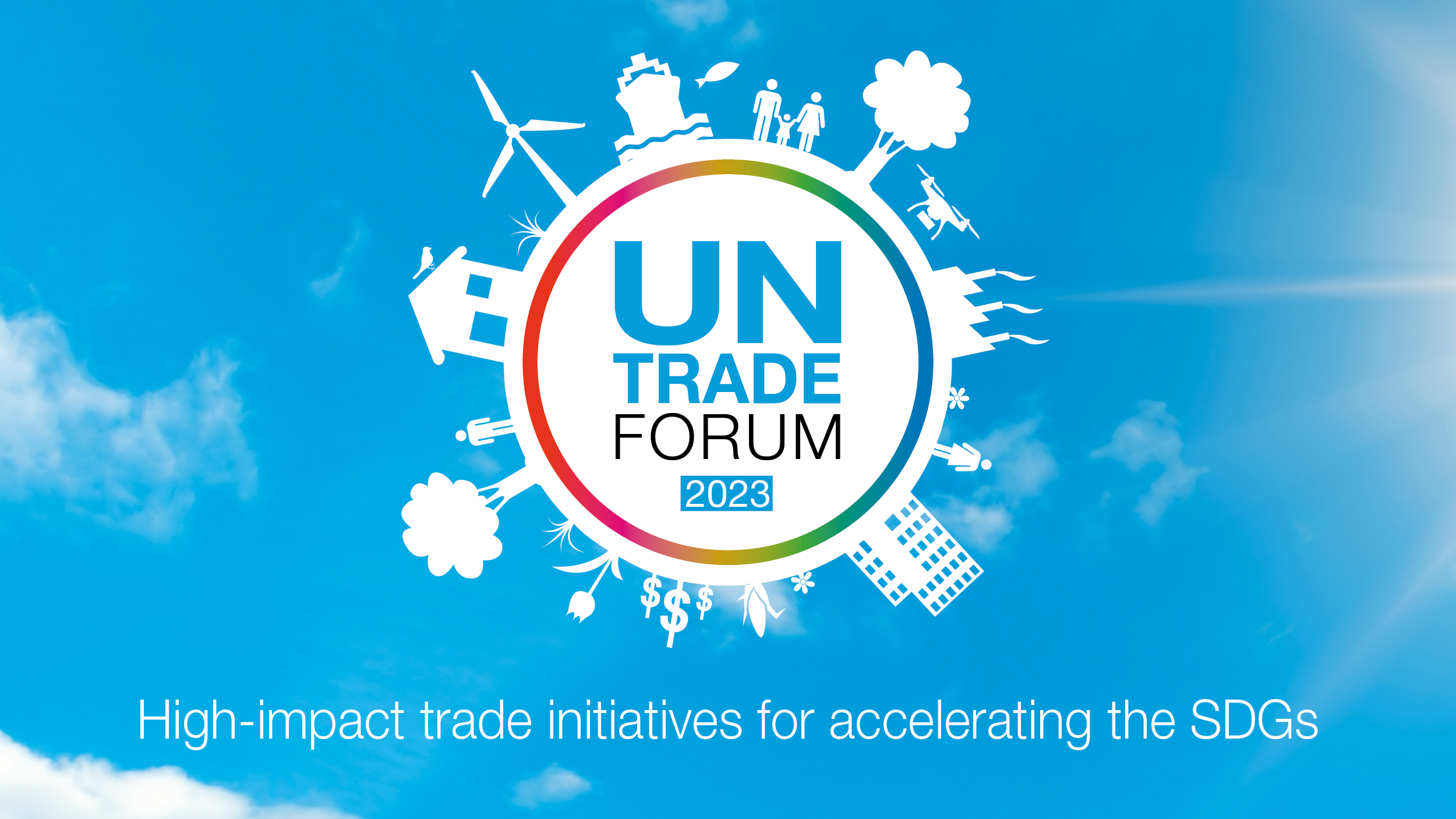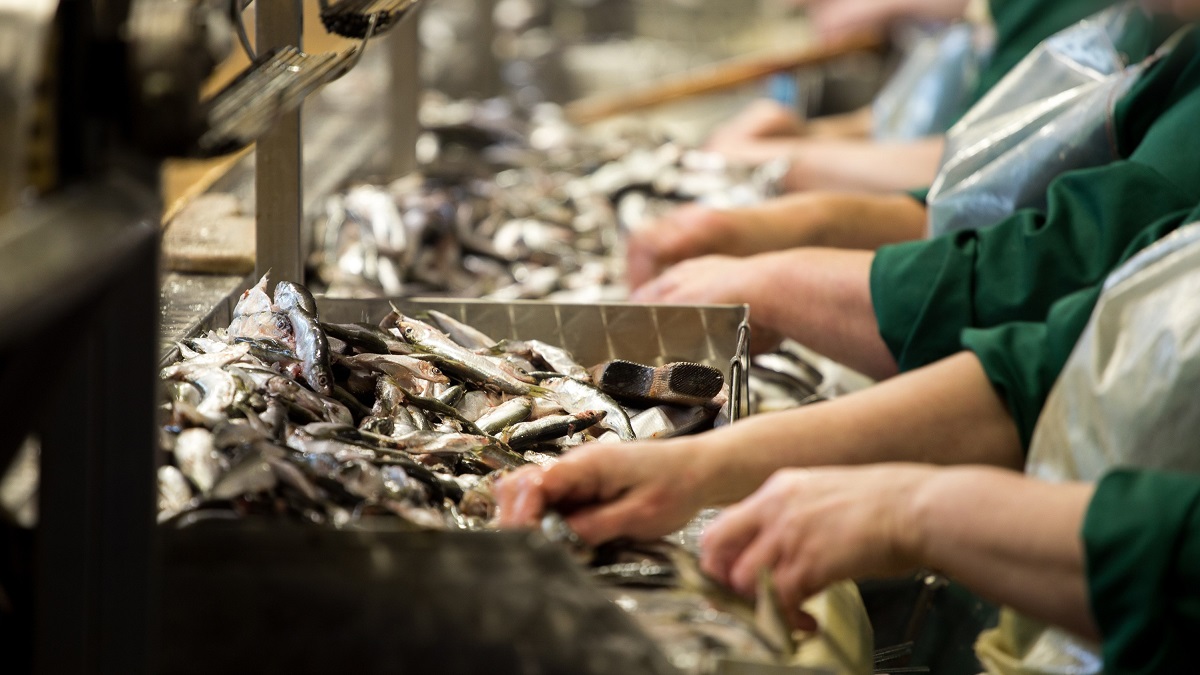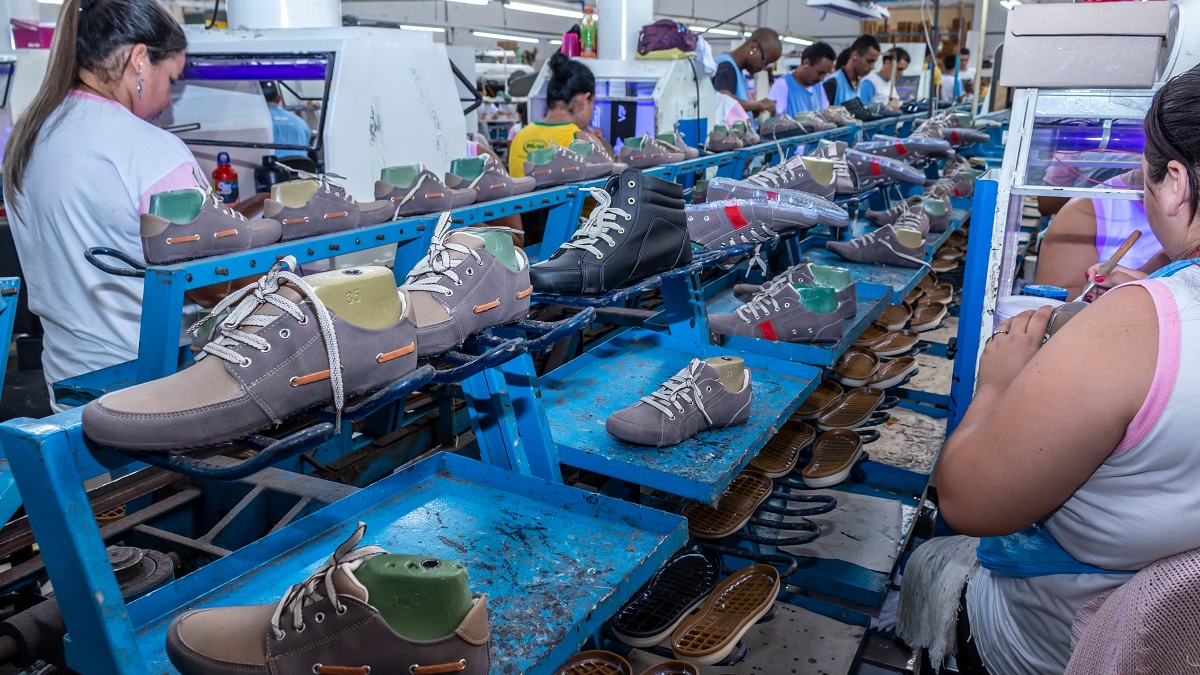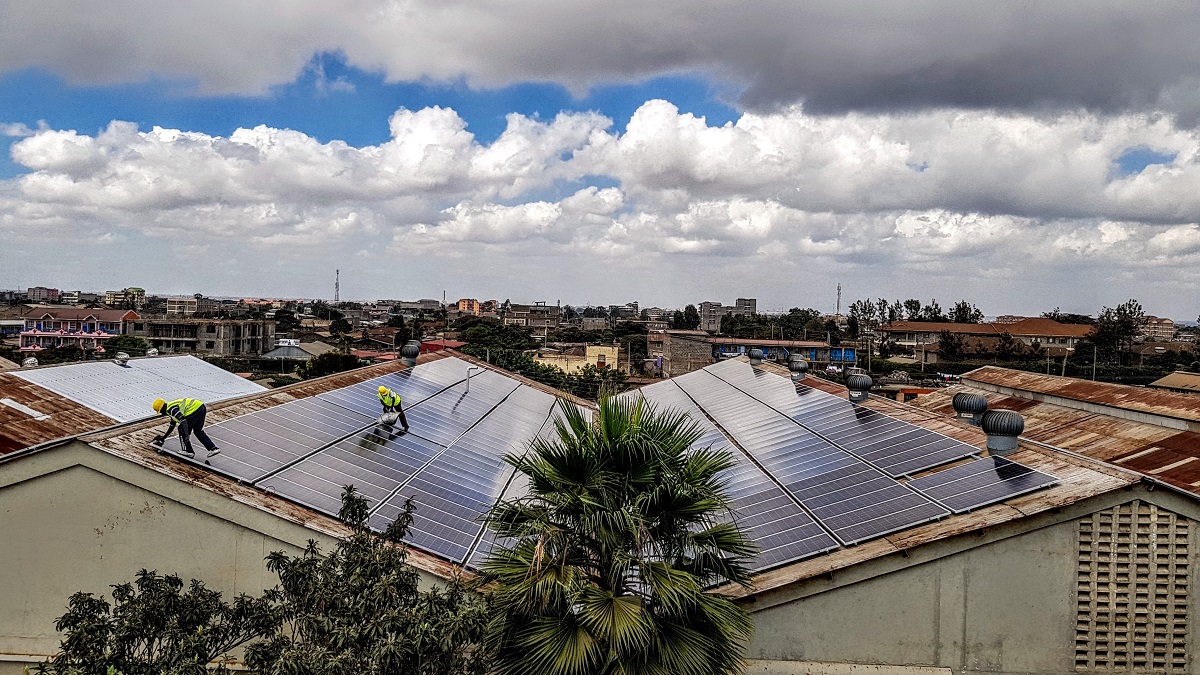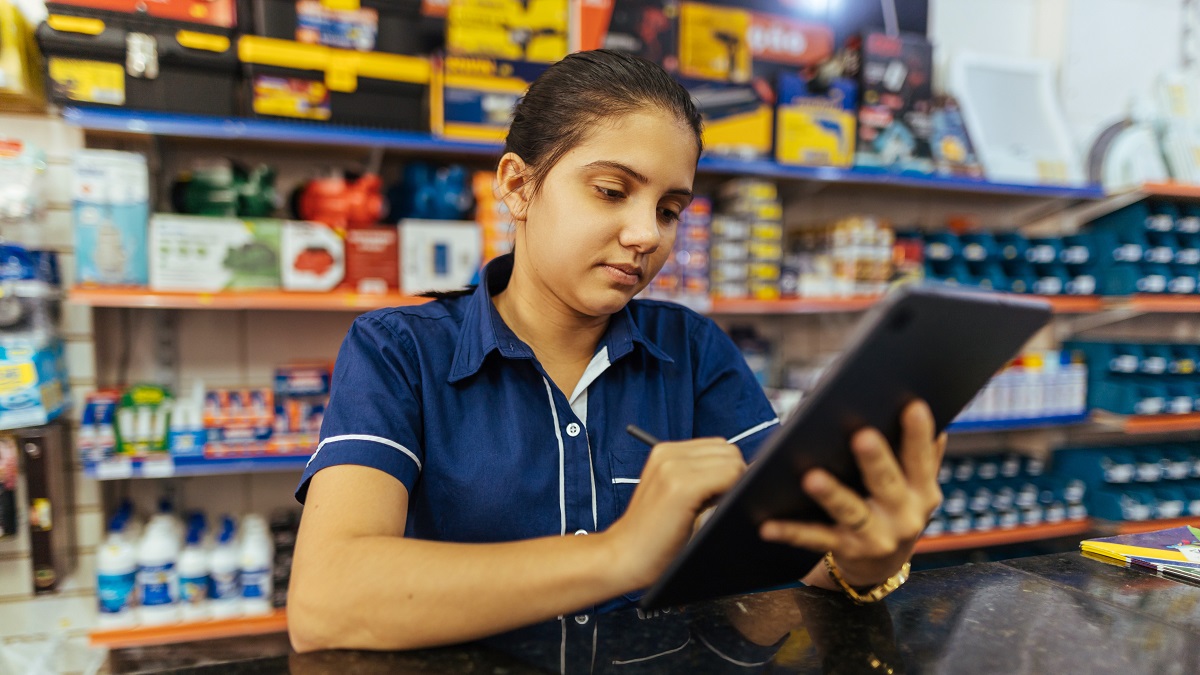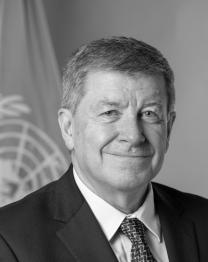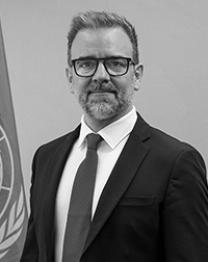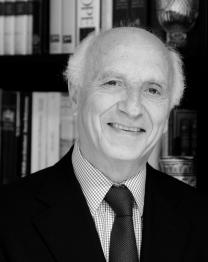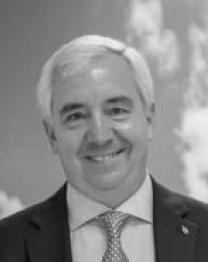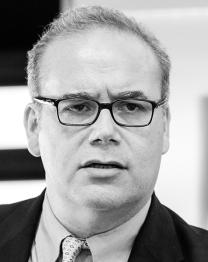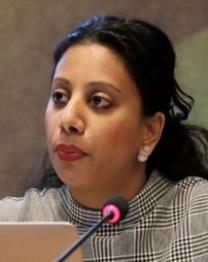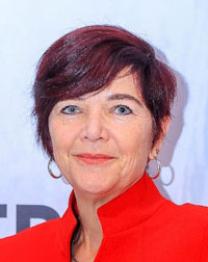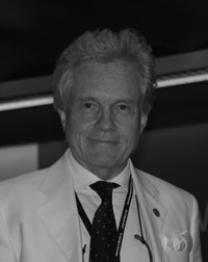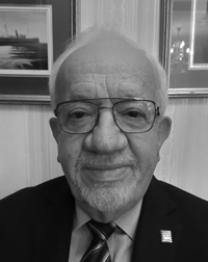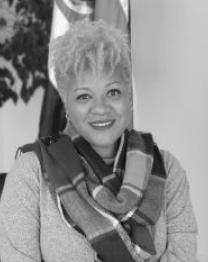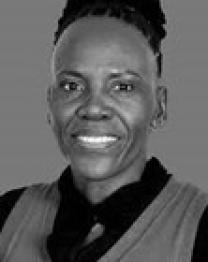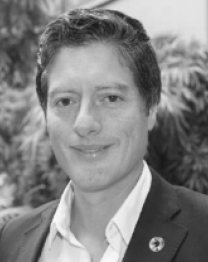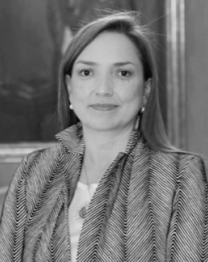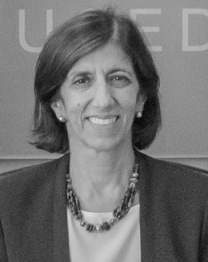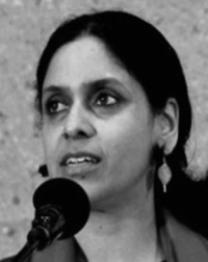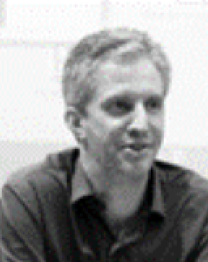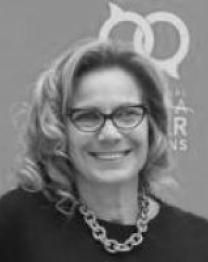UNCTAD hosted the third UN Trade Forum on 8 and 9 May 2023. It focused on trade policies that can help countries grow their economies while tackling pressing global challenges and accelerating progress towards achieving the UN’s Sustainable Development Goals (SDGs).
The forum gave particular attention to developing countries, which have been hit hardest by multiple global crises including the COVID-19 pandemic, the war in Ukraine and the climate emergency.
More than 100 trade experts, policymakers, senior officials from international organizations, business leaders, and civil society representatives met in Geneva and online to discuss policies and initiatives that can make trading systems more inclusive, environmentally friendly and resilient.
The forum discussions and report contribute to key global events, including the 2023 SDG Summit, the 28th UN climate summit (COP28), the World Trade Organization’s 13th ministerial conference and The Summit of the Future.
Toward the SDG Summit 2023: High-impact trade initiatives for accelerating the SDGs
The adoption of the 2030 Agenda and the SDGs has mobilized global, regional and local action. However, at the mid-point of implementation before the target year of 2030, the Goals are off track.
The 2023 SDG Summit provides an opportunity to ramp up international commitment to the 2030 Agenda and the SDGs, showcase areas of global progress and challenges and accelerate implementation and transaction.
The UN Trade Forum identified four high-impact trade initiatives that will help leverage progress in key areas to accelerate implementation process for the SDGs.
The Global System of Trade Preferences among Developing Countries (GSTP) Agreement will enter into force when one more member ratifies it, unlocking the full potential of a $16 trillion market with over 4 billion people.
South-South trade partnerships can foster knowledge sharing on best practices in trade, investment, capacity building and technology transfer, and can help countries of the Global South to mitigate and adapt to climate change and ensure food security.
This is true for South-South trade partnerships in regional trade agreements such as the African Continental Free Trade Area or inter-regional trade arrangements under the GSTP.
The GSTP in particular is a comprehensive and agile partnership framework for South-South trade cooperation. It allows developing countries to take concerted actions to address tariffs, non-tariff measures and direct trade measures on a horizontal or sectoral basis. Its potential could be fully exploited to address contemporary global challenges.
The UNCTAD Trade and Environment Review 2023, calls for a global “Blue Deal” to protect and invest in the vast opportunities our ocean holds for developing countries to build more innovative and resilient economies.
The Blue Deal is a political call for enhanced resource mobilization to bridge the financing gap to achieve SDG 14 and implement trade-related targets by 2030, which historically have received less than 2% of all Official Development Assistance.
The deal calls for increased private investment in promising and emerging ocean-based goods and services that can enable the sustainable use of marine resources and ecosystem services, focusing on the sectors and activities that provide benefits in higher income and improved livelihoods to people living in developing countries.
Such activities include seaweed farming for food and non-food products, natural plastic substitutes, renewable ocean energy and coastal and marine tourism.
Consumer protection and competition policies determine the chance of achieving SDG 12, helping countries encourage businesses and people to adopt more sustainable practices.
When empowered consumers value the importance of sustainable products and make well-informed decisions, businesses are encouraged to compete in terms of sustainability. And as sustainability becomes a priority for policymakers worldwide, markets will increasingly be expected to deliver sustainable results.
This is where competition and consumer protection policies intersect with sustainability. They are conducive to improving the efficiency and fairness of markets – and are therefore well placed to serve public policy goals.
Gender-responsive digitalization and e-commerce strategies are needed to ensure that small-scale enterprises, particularly those led by women, can benefit from new digital opportunities – and that the challenges they face, especially in developing countries, are recognized and mitigated.
Key steps in this direction include ensuring reliable and affordable internet access, enhancing women’s digital literacy, improving access to finance, and encouraging women’s participation in the design of digital and e-commerce strategies.
Public-private partnerships and a “whole-of-government” approach are also instrumental in achieving these results. Gender impact assessments of digital and e-commerce strategies before they are implemented (ex-ante) would contribute to making them gender responsive. This is the case, for example, for “ex-ante” gender impact assessment of trade agreements under negotiation. Furthermore, it is imperative to place the gender equality agenda at the heart of the proposed Global Digital Compact.
Trade and the SDGs
Trade can be an important means to achieve the Sustainable Development Goals (SDGs) – from helping to reduce poverty and mitigate climate change to promoting gender equality, economic growth, responsible consumption and access to energy.
That’s why the 2030 Agenda for Sustainable Development recognizes international trade’s crucial role as an engine for inclusive and greener economic growth.
International trade can provide developing countries with access to new markets, which can lead to increased economic opportunities by promoting the exchange of goods and services across borders. It supports the development of productive capacities, resilient infrastructure, and innovation, all of which are key contributors to economic growth and poverty reduction.
In terms of international cooperation and partnerships, trade plays an important role in addressing global challenges such as climate change and inequalities, including those affecting women, people with disabilities and young people. In addition, trade can support responsible production and consumption by promoting business models and patterns that use resources more efficiently, reduce waste and pollution, and shape a new economy that is more circular.
In addition, trade can help to mobilize the resources needed to finance the SDGs by increasing investment flows and encouraging private sector engagement in sustainable development.
Videos
Watch the forum's opening session
Watch the keynote address by Rubens Ricupero, former UNCTAD Secretary-General
UNCTAD will host the third iteration of the UN Trade Forum to take stock of trade policies that are best tailored to the challenges that the world faces. Discussions will focus on approaches that will make trading systems more resilient, particularly in developing countries, clarify the effectiveness and feasibility of a set of trade-related “high-impact initiatives” to respond to global challenges, and to expedite progress towards the SDGs.
This event provides a platform to identify cooperation frameworks to contribute to the 2023 SDG Summit (September, 2023), the UNFCCC COP 28 (November 2023), and the 13th WT0 Ministerial Conference (early 2024). The Forum will also set the scene for the celebrations of UNCTAD's 60th annivesary in 2024.
Watch the opening on UN Web TV
The UN Trade Forum will be organized in four plenary sessions:
Session 1: The South-South trade partnership for accelerating the SDGs achievement
The Global System of Trade Preferences among Developing Countries (GSTP) is a unique partnership framework for South-South trade cooperation. It emerged from the desire of developing countries to stimulate trade among themselves. We now have a fresh window of opportunity for breaking the logjam in the implementation of the past negotiating results and moving ahead to embark on new South-South trade agenda. Within the current context of “polycrisis”, the GSTP provides a vehicle to address pressing global challenges through trade cooperation to accelerate the achievement of SDGs. What is the role of South-South trade on the path for sustainable development? How can the GSTP be better utilized to enable further trade and economic integration among developing countries? In which policy areas or sectors can trade cooperation be strengthened in a manner supportive of the achievement of SDGs?
Watch the session on UN Web TV
Session 2: Building a sustainable ocean economy for development
Launch of the Trade and Environment Review 2023
In 2022, a political road map "our ocean, our future, our responsibility" was adopted at United Nations Ocean Conference in Lisbon in July 2022. Additionally, a call for a Blue Deal was made at the 4th UN Oceans Forum in Geneva in April 2022.
The Ocean Economy, and particular blue foods sector, was remarkably impacted by the COVID-19 pandemic and is still being affected by the war in Ukraine.
The Trade and Environment Review 2023: "Building a sustainable ocean economy" examines and provides an analysis of several emerging topics, including the sustainable fisheries, aquaculture, and seaweed sectors as levers for a sustainable economic recovery; fisheries subsidies and non-tariff measures reform; the decarbonization of shipping and maritime supply chains; and the impact plastic litter challenge on the food web. It identifies the main opportunities, and challenges and concludes by offering a bottom-up list of action-oriented policy recommendations beyond 2030.
Session 3: SDG 12 Sustainable Consumption and Production: the contribution of competition and consumer policies
Launch of UNCTAD report on Competition and Consumer Protection Policies for Sustainability
Responsible Consumption and Production, the Sustainable Development Goal 12 (SDG 12), is an essential component of sustainable development and a critical priority for the international community, as evidenced in the new UNCTAD report Competition and Consumer Protection Policies for Sustainability. Achieving SDG 12 requires the adoption of sustainable production and consumption patterns, which minimize environmental impacts, promote resource efficiency, and reduce waste. In this context, the role of competition and consumer protection policies in promoting sustainable consumption and production has received increasing attention in recent years. This panel aims to address the urgent need to advance towards sustainable consumption and will explore the contributions of competition and consumer protection policies in achieving SDG 12. Further, discussions will identify opportunities for advancing towards sustainable consumption and production.
Session 4: Gender gaps and digital solutions
Launch of UNCTAD Policy Review: E-commerce from a gender and development perspective
Digitalization has the potential to improve productivity, sustainability, and resilience in many economic sectors. Digital technologies can expand access to information and to new market opportunities and facilitate the integration of small entrepreneurs into domestic and regional value chains in agriculture and in other sectors. The potential of digital technologies for enhanced productivity and trade is, however, limited by gender gaps in technology adoption and use. UNCTAD has explored the benefits but also the challenges of e-commerce for women-led small enterprises in developing and least developed countries in its new policy review, E-commerce from a gender and development perspective. The launch of the publication will provide the opportunity for a panel discussion. What are the desirable interventions to guarantee that the benefits of digital technologies are equally shared and are gender-inclusive? What kind of digital platforms are more adapted to women's business? Is there any similarity between the debate on trade and gender and the one of digitalization and gender? What are the promising initiatives in this field? What role should UNCTAD play?
United Nations Secretary-General António Guterres announced on 7 October 2022 the appointment of Guy Ryder of the United Kingdom as Under-Secretary-General for Policy in his Executive Office. He will succeed Volker Türk of Austria who has been appointed as United Nations High Commissioner for Human Rights.
Mr. Ryder was most recently Director-General of the International Labour Organization (ILO) in Geneva after serving two successive terms since October 2012. He first joined the ILO in 1998 as Director of the Bureau for Workers’ Activities and from 1999, served as Director of the Office of the Director-General.
Mr. Ryder started his professional career in 1981 as an assistant at the International Department of the Trades Union Congress in London. From 1985, he held the position of Secretary of the Industry Trade Section of the International Federation of Commercial, Clerical, Professional and Technical Employees (FIET) in Geneva. In 1988, he became Assistant Director and – from 1993 - Director of the Geneva office of the International Confederation of Free Trade Unions (ICFTU). In 2002, he was appointed General Secretary of the ICFTU and was elected as the first General Secretary of the International Trade Union Confederation (ITUC) when it was created in 2006. He returned to the ILO in 2010 as Executive Director, responsible for international labour standards and fundamental principles and rights at work.
Mr. Ryder studied Social and Political Sciences at the University of Cambridge and Latin American Studies at the University of Liverpool. He speaks English, French and Spanish.
Mr. Pedro Manuel Moreno of Spain, is Deputy Secretary-General of UNCTAD.
He has over 20 years of experience of working for multilateral and intergovernmental organizations in programme, management and strategic positions both in the field and at headquarters.
He was Deputy Secretary-General of the Communication for Development Committee at the Spanish National Commission with the United Nations Educational, Scientific and Cultural Organization (1999-2004), and for the United Nations Development Programme, at the Country Office in Ecuador and, in New York City, as part of the Human Development Report team, at the Regional Bureau for Latin America and the Caribbean and at the Executive Office.
In 2014, he was appointed Chief of Staff of the Ibero-American Conference in Madrid, where he coordinated key political processes and South-South cooperation projects.
In September 2021, he was named Chief of Staff and Director of the Office of the Secretary-General of UNCTAD.
Rubens Ricupero, currently in charge of the José Bonifácio Chair of Ibero-American Studies at the University of São Paulo, was from l995 to 2004, the Secretary-General of the United Nations Conference on Trade and Development (UNCTAD), in Geneva. Before that, he had been Minister of Finance of Brazil (1994), succeeding Fernando Henrique Cardoso. In 1993-94, Rubens Ricupero was Brazil’s Minister of the Environment and Amazonian Affairs, an area where he had accumulated experience as the Chairman of the Negotiation Group on Finance, during the United Nations Conference on Environment and Development, the Rio Climate Summit, in 1992, in Rio de Janeiro.
For several decades, he has been associated with international trade negotiations, as the chief Brazilian negotiator during most of the duration of the Uruguay Round of the GATT (1987-1991).
In Presidents Tancredo Neves-José Sarney’s Administration, he was Deputy-Chief of the Presidential staff and Special Adviser to the President (1985-1987).
For 36 years, he was a career diplomat, reaching the posts of Secretary for Inter-American Affairs, at Brazil’s Ministry of Foreign Relations.
He represented Brazil as Ambassador at the GATT and the United Nations Organization, Geneva (1987-1991), Ambassador to the United States of America (1991-1993) and Ambassador to Italy (1995).
Rubens Ricupero was born in São Paulo on March 1st, 1937, and he studied Law at the University of São Paulo. He was a Professor of Theory of International Relations at the University of Brasilia and of History of Brazilian Diplomatic Relations at the Rio Branco Institute, the Brazilian Diplomatic Academy. He published several books and articles on international trade, development issues and international relations. His most recent book is A Diplomacia na Construção do Brasil 1750-2016 (2017), a history of Brazilian diplomacy and foreign policy, awarded the José Ermirio de Moraes Prize by the Brazilian Academy of Letters.
Federico Villegas is the Permanent Representative of Argentina to the United Nations Office at Geneva, since 2020. Prior to his arrival in Geneva, Mr. Villegas had been serving as Argentina’s Ambassador to Mozambique until 2016. He served as the Director General of Human Rights at the Ministry of Foreign Affairs of Argentina from 2012 to 2016, and from 2005 to 2007. He was Argentina’s Alternate Representative to the Southern Common Market MERCOSUR and the Association for Latin-American Integration ALADI in Montevideo, Uruguay from 2008 to 2011.
A career diplomat, Mr. Villegas joined Argentina's Foreign Service in 1993. He was Deputy Director General of Human Rights at the Ministry in 2003 and 2004, and Argentina’s Alternate Representative to the Organization of American States in Washington DC from 1995 to 2003. He also served at the Directorate of International Security, Nuclear and Space Affairs at the Ministry of Foreign Affairs from 1993 to 1995.
Mr. Villegas has a Master of Arts in liberal studies from Georgetown University, Washington DC (1998). He graduated as a lawyer from the National University of Rosario in Santa Fe, Argentina (1989). He also attended an intensive programme for human rights at New College, Oxford University, United Kingdom (1999), and has a human rights diploma from the International Institute of Human Rights, Strasbourg, France (2001). He was born in Santiago del Estero, Argentina on 24 March 1966. He is married with two children.
Miho Shirotori is the Acting Director of the Division on International Trade and Commodities (DITC) of the United Nations Conference on Trade and Development (UNCTAD).
Miho also leads a team of experts that assess how trade agreements, trade in services, and the creative economy contribute to inclusive and sustainable economic diversification.
Her expertise includes “equitable” trade in agriculture for least developed countries, low-income countries, and net food-importing developing countries.
Miho represents UNCTAD in global conferences and various inter-agency activities, including the UN inter-agency task force that monitors the implementation of the Addis Ababa Action Plan for the Financing for Development.
Mr. Maximo Torero Cullen is the Chief Economist of the Food and Agriculture Organization (FAO). He joined the Organization in January 2019 as Assistant Director-General for the Economic and Social Development Department. Prior to joining FAO, he was the World Bank Group Executive Director for Argentina, Bolivia, Chile Paraguay, Peru and Uruguay since November 2016 and before the Bank Mr. Torero led the Division of the Markets, Trade, and Institutions at the International Food Policy Research Institute (IFPRI). His major research work lies mostly in analyzing poverty, inequality, importance of geography and assets (private or public) in explaining poverty, and in policies oriented towards poverty alleviation based on the role played by infrastructure, institutions, and on how technological breakthroughs (or discontinuities) can improve the welfare of households and small farmers. His experience encompasses Latin America, Sub-Saharan Africa, and Asia.
Mr. Torero, a national of Peru, holds a Ph.D. and a Master’s degree in Economics from the University of California, Los Angeles (UCLA), and a Bachelor’s degree in Economics from the University of the Pacific, Lima, Peru. He is a professor on leave at the University of the Pacific, Perú, and an Alexander von Humboldt Fellow at University of Bonn, Germany, and has also published in top journals (QJE, Econometric Theory, AER-Applied Microeconomics, RSTAT, Labor Economics and many other top journals).
Mr. Torero has received in 2000 the Georg Foster Research Fellowship of the Alexander von Humboldt Foundation, won the Award for Outstanding Research on Development given by the Global Development Network, twice, in 2000 and in 2002, and received the Chevalier de l'Ordre du Mérite Agricole in 2014.
Ms. Trudi Hartzenberg is the Executive Director of tralac (Trade Law Centre) based in the Western Cape region of South Africa.
Her research is in the areas of international trade, competition policy, industrial development and Africa's integration agenda. She currently serves on the WTO Chairs Advisory Committee and is a member of the Committee for Development Policy of the United Nations Economic and Social Council (ECOSOC).
Vahini Naidu is the Programme Coordinator of the Trade for Development Programme of the South Centre, an intergovernmental organisation of developing countries that helps developing countries to combine their efforts and expertise to promote their common interests in the international arena. She provides policy analysis and advice on trade policies to developing countries and developing country groupings in Geneva as well as to capitals.
Prior to joining the South Centre, she was an international trade negotiator for the Department of Trade and Industry in South Africa covering SADC, Tripartite FTA, AfCFTA and WTO negotiations. She was a diplomat at the South African Permanent Mission to the WTO in Geneva, Switzerland, and Focal Point and Coordinator of the African Group in the WTO.
She holds a Bachelor of Laws and Master of Commerce Degree.
Craig VanGrasstek, according to The Economist (January 22, 2000), “keeps a sharp eye on the politics of trade.” He has been a trade consultant since 1982, and has worked as an analyst, advisor, and trainer in over four dozen countries on five continents. Dr. VanGrasstek’s clients include government agencies, corporations, and international organizations. He received his doctorate in Politics from Princeton University in 1997, and also holds degrees in international relations from Georgetown University’s School of Foreign Service (MSFS, 1983) and the University of Minnesota (BA, 1981). Dr. VanGrasstek has taught international relations at the American University (1994-2001), trade policy at the Harvard Kennedy School (2000-present), and literature at Georgetown University (2006-2009). He wrote the official history of the World Trade Organization (2013), and in 2019 Cambridge University Press published his book on Trade and American Leadership: The Paradoxes of Power and Wealth from Alexander Hamilton to Donald Trump.
Usha Chandnee Dwarka-Canabady is Permanent Representative of the Republic of Mauritius to the United Nations and other International Organizations in Geneva.
Prior to this appointment, Ambassador Dwarka-Canabady was, since November 2015, Secretary for Foreign Affairs of Mauritius, after having been acting Secretary for Foreign Affairs between April 2013 and October 2015. She was also Head of the Multilateral Economic Directorate (January 2007 to March 2013) and Head of the Multilateral Political Department (May 2006-2007) of the Ministry of Foreign Affairs, International Trade and Regional Integration in Port-Louis, Mauritius.
Mrs Dwarka-Canabady has a BA in Psychology, Sociology and English from the University of Leicester, an MA in International Politics from the University Libre of Brussels, and a Diplomatic Studies Program Certificate from the Graduate Institute International Studies in Geneva.
The Rt Hon Patricia Scotland QC is the 6th Commonwealth Secretary-General. She was born in Dominica and was their candidate for the post at the Commonwealth Heads of Government Meeting (CHOGM) in Malta in 2015. She is the 2nd Secretary-General from the Caribbean and the 1st woman to hold the post.
Patricia Scotland was born in the Commonwealth of Dominica. She completed her LLB (Hons) London University at the age of twenty and was called to the Bar at Middle Temple at the age of twenty-one.
Her career has been marked by achieving a number of extraordinary firsts, not least of which was to be the first woman in the more than 700-year history of the office to serve as Her Majesty’s Attorney-General for England and Wales and for Northern Ireland.
While holding these and other senior ministerial offices she was given responsibility, inter alia, for gender equality, domestic violence, forced marriage, and international child abduction, and from these positions promoted diversity and equality of opportunity, particularly for women and girls.
As the only woman to have been appointed Secretary-General of Commonwealth she is placing special emphasis on mobilising the 54 nations of the Commonwealth to tackle climate change – including its disproportionate impact on women – and, through women’s enterprise, to build the resilience of smaller or more vulnerable countries. Eliminating domestic violence and violence against women and girls is another area of focus.
Chantal Line Carpentier joined UN Trade and Development (UNCTAD)'s Division on International Trade and Commodities (DITC) in 2014, after serving as Chief, UNCTAD New York Office of the Secretary-General. She brings to the Branch over 25 years of work experience in international trade, and environmental and agro-economics.
Prior to working with UNCTAD, she supported the Commission on Sustainable Development and served as Major Groups (of non-State actors) coordinator for the UN Rio+20 Conference and the SDGs negotiations at the United Nations Department of Economic and Social Affairs (UNDESA). She also supported the sustainable consumption and production and sustainable agriculture negotiations.
As Head of the North American Free Trade Agreement Commission for Environmental Cooperations, she lead work on the nexus of environment, economy, and trade. She also served as Agro-environmental Policy Analyst for Winrock International, and post-Doctoral fellow/Brazil office manager for the International Food Policy Research Institute.
She has an extensive list of publications on sustainable agriculture, trade and environment, sustainable consumption and production, financing for sustainable development, stakeholder engagement, global value chains, micro, small and medium enterprises, and economic empowerment of women.
She obtained a PhD. in Agro-Environmental Economics from Virginia Technology and MSc. and BSc. from McGill University.
David Vivas Eugui is Chief of Ocean and Circular Economy Unit, a.i., Trade, Environment, Climate Change and Sustainable Development Branch, at UNCTAD.
Previously, he was a Senior Economic Affairs Officer in UNCTAD’s Trade Negotiations and Commercial Diplomacy Branch, Deputy Programmes Director at the International Centre for Trade and Sustainable Development (ICTSD), Senior Attorney at the Center for International Environmental Law (CIEL), Attaché for Legal Affairs at the Mission of Venezuela to the World Trade Organization (WTO) and Staff Attorney at the Venezuelan Institute of Foreign Trade. David is an international expert with more than 20 years of experience on legal and economic issues.
He has worked as an advisor and consultant for various institutions, international and national organizations and has lectured on intellectual property, trade, oceans economy and environmental law at the University of Strasbourg (CEIPI), Universidad de Buenos Aires (Argentina), Universidad Javeriana (Colombia), Maastricht University (the Netherlands), WIPO Distant Learning Academy, and University of Business and International Studies (Switzerland).
He holds a JD from the Universidad Catolica Andres Bello, an LLM from Georgetown University and a Master in Transnational Business from the Universidad Externado de Colombia.
Audun has been with FAO for 25 years, where he is currently the Deputy Director of the Fisheries and Aquaculture Division. Audun was for many years also the Secretary of FAO’s Sub-Committee on Fish Trade (COFI:FT), the main international body for discussion and recommendations on trade and market issues in the sector, as well as the Coordinator of the GLOBEFISH project.
His thematic work areas include aquaculture policy development and management, commodity price trends and price indexes, policy issues related to international trade and market access, market-based instruments, social responsibility, certification, traceability, trade and food security, gender issues, and domestic and regional market development.
Before joining FAO, he worked as an independent agribusiness consultant, project manager at Norway’s Embassy in Italy, and financial analyst on the Oslo Stock Exchange.
Audun has a Ph.D. in Agricultural Sciences from the Sea Fisheries Institute in Poland, a Master’s in Business Administration from Harvard University, and a Bachelor of Arts in Economics from the Norwegian School of Economics.
A former United Nations diplomat with 27 years of experience in the diplomatic service. He served on request as Secretary of the Ministerial meetings of the G77 prior to UNCTAD in Tehran, Havana, Morocco, South Africa and as Secretary of the G77 regional meetings in Bangladesh, Jordan, Lebanon.
He assisted and advised the Government of Qatar in organizing the South Summit in Doha, 2004, and other countless events including the GATES conference in Shanghai and GPA in Beijing.
He has BA in business administration from Mustensiriya University (1968) and a Msc and PhD at the University of Wales (1972-76).
Jérôme Bonnafont is the Permanent Representative of France to the United Nations Office at Geneva since September 2021.
Prior to his appointment in Geneva, Mr. Bonnafont was, since September 2020, working on human resources policies at the Ministry of European and Foreign Affairs, after having been Advisor to the Prime Minister, from January 2020 to July 2020. Previously, between 2015 and 2019, Mr. Bonnafont was the Director of North Africa and the Middle East at the Ministry of European and Foreign Affairs. From 2011 to 2012, he was Chief of Staff to the Minister of State, Minister of Foreign Affairs.
Mr. Bonnafont served as the Ambassador of France to Spain (2012-2015) and to India (2007-2011). He was Counselor at the Permanent Mission of France to the United Nations in New York (1993-1995) and at the Embassy of France in Kuwait (1991-1993), as well as Secretary at the Embassy of France in India (1986-1989).
The Permanent Representative also worked as the Advisor for Global Affairs and the Spokesperson for the Presidency of the Republic (1997-2007), Head of the International Affairs Department of the Ministry of the Environment (1996-1997), and in the Directorate of Legal Affairs at the Ministry of Foreign Affairs (1995-1996).
Born on 8 January 1961, Mr. Bonnafont is a graduate of the Institut d'Etudes Politiques de Paris and the École Nationale d'Administration.
Shara Duncan-Villalobos is Lawyer by profession and career diplomat since 2006. Currently serving as Ambassador Deputy Permanent Representative and Chargée d’Affaires a.i. of Costa Rica to the United Nations Office and other international organizations based in Geneva.
Ambassador Duncan-Villalobos has a Master’s degree in Human Rights and Education for Peace from the Universidad Nacional, Costa Rica. Graduated from the Raphael Lemkin Seminar for the Prevention of Genocide, the Summer Course on Public International Law of the Hague Academy of International Law and the XXIV Interdisciplinary Course on Human Rights of the Inter-American Institute of Human Rights, San José, among others.
She has served as Legal Advisor in the Permanent Mission to the UN in New York, Counsellor in the Netherlands, and Consul in Nicaragua. Within the Ministry she served as coordinator of the Cooperation programs with South America, advisor to the Minister on International Litigation, Advisor to the Vice Minister on Human Rights related issues, and many others.
Ms. Thezi R. Mabuza is currently Deputy Commissioner at the National Consumer Commission after leaving the employment of Department of Trade and Industry as the Chief Director of National Liquor Authority. Previously, she was the senior manager for Skills Development and Administration at the Safety and Security Sector Education and Training Authority (SASSETA). She also held Directorship positions at the Department of Correctional Services responsible for Functional and Management Training and Training Standards.
Natalie Harsdorf-Borsch, is a lawyer in competition law and since 2021 interim head of the Austrian Competition Authority . She has been working for the Federal Competition Authority (BWB) since 2009. She is the first woman to head the highest competition authority in Austria. Natalie Harsdorf-Borsch is the author of numerous specialist publications in the field of antitrust law. She is also the founder of the Women Competition Law Network Austria.
Ninette K. Mwarania is the Manager of the Planning and Research (P&R) Department, the central planning unit for the Competition Authority of Kenya, as the output is used to initiate enforcement actions and guide advocacy programs. Ninette's main focus is to ensure that the Department produces credible economic evidence and guidance that the Authority can rely on in the cases being handled. Additionally, P&R monitors performance to ensure that the authority's vision is realized, advances the Authority’s internal and external knowledge management and enhances institutional risk management practices.
Ms. Athanasia Gavala is the Director General of the Hellenic Competition Commission. Ms. Athanasia Gavala's work focuses on merger control, cartel investigations, and antitrust compliance. She has previously worked as counsel in the private sphere and since 2021 she is the Director General of the Hellenic Competition Commission.
Jorge Laguna-Celis is the Head of the One Planet Network, hosted by the United Nations Environment Programme (UNEP). Based in Paris, The One Planet Network is a global community of practitioners, policymakers and experts working to accelerate the implementation of SDG 12: ensuring sustainable patterns of consumption and production.
Jorge has previously worked for the United Nations in multiple capacities and possesses 20 years of experience in intergovernmental and multi-stakeholder processes, global sustainable development policies and sustainable development governance.
Jorge holds an MA degree in International Trade from the Institut d’Etudes Politiques (Sciences-Po) Paris, alongside being an author of several publications and books on issues related to international affairs and sustainable development. His latest book entitled "From Rio+20 to a New Development Agenda: Building a Bridge to a Sustainable Future", was published in 2014 by Routledge.
Carmen Ligia Valderrama Rojas is a Lawyer from Universidad Externado de Colombia. Specialist in Business Law from Universidad Externado de Colombia. Master’s degree in Business Law from the Centro Europeo de Estudios y Formación Empresarial Garriguez & Andersen, Madrid-Spain. Postgraduate course "Management of the Market Product Security Surveillance System". School of Administration of the Pompeu Fabra University of Barcelona, the Catalan Consumer Agency, the Organization of American States and the Pan-American Health Organization. Washington.
She was Head of the Legal Office, General Secretary, Advisor to the Superintendent, Delegated Superintendent for Industrial Property (e), Delegated Superintendent for Consumer Protection and Superintendent of Industry and Trade (e), Superintendent of Industry and Trade, Superintendent of Transport and currently serves as Deputy Minister of the Ministry of Transport.
Teresa Moreira is the Head of the Competition and Consumer Policies Branch, Division on International Trade and Commodities at UNCTAD. She joined UNCTAD in 2016 and previously served as the Consumer Director-General of Portugal and as a Member of the Board of the Portuguese Competition Authority when it was first created. She also served as Portugal’s Director-General and Deputy Director General for International Economic Relations and held senior positions at the Directorate-General for Competition.
Teresa worked for over 20 years as a Teaching Assistant at the Faculty of Law of the University of Lisbon in the areas of International Economic Law and European Law, as well as European Competition Law and European Economic Law at the graduate level.
Teresa holds a degree in Law and a master’s degree in European Law (European Competition Law) from the University of Lisbon, Portugal.
Ms. Sofia Boza is the Ambassador of Chile to the WTO. Prior to becoming Ambassador of Chile to the WTO, Ambassador Boza was associate professor and director of the Department of Rural Management and Innovation of the University of Chile and professor of the Institute of International Studies of the same university, as well as external evaluator of public policies of the Directorate of Budgets of the Ministry of Finance of Chile.
Ambassador Boza holds a PhD in Economics from the Autonomous University of Madrid. Her areas of research include agri-food governance, rural development, food markets and international agricultural trade.
Anita Gurumurthy is a Founding Member and Executive Director of IT for Change, where she leads research on the platform economy, data and AI governance, democracy in the digital age, and feminist frameworks on digital justice.
Anita actively engages in national and international advocacy on digital rights and contributes regularly to academic and media spaces. She serves as advisor and expert on various bodies including the United Nations Secretary-General’s 10-Member Group in support of the Technology Facilitation Mechanism , the Paris Peace Forum’s working group on algorithmic governance, Save the Children’s ICT4D Brain Trust, and Minderoo Tech & Policy Lab ‘s Board.
Christian Volpe Martincus is Principal Economist at the Integration and Trade Sector of the Inter-American Development Bank. Christian has expertise in international trade, foreign direct investment, and regional integration and has advised governments in both Latin America and the Caribbean and OECD countries on these matters. He previously worked for the Ministry of the Economy of the Province of Buenos Aires and was advisor at the MERCOSUR Commission of the National Representatives Chamber in Argentina.
At the IDB, Christian has been working on the impacts of trade and investment facilitation and promotion policies, the effects of trade and multinational production on sustainability, and the implications of digital technologies for trade and investment, among other topics.
Christian has a PhD in Economics from the University of Bonn, and is CESifo Research Fellow, Associate Editor of the Review of International Economics, and member of the Editorial Board of the World Trade Review.
Simonetta Zarrilli is the chief of the Trade, Gender and Development Programme of the United Nations Conference on Trade and Development (UNCTAD), a programme she launched in 2010 and has been leading since. Under her leadership, the Programme provides analytical, policy and capacity-building support to member countries on the gender implications of trade policy.
Prior to leading this work area, Ms. Zarrilli worked on several trade and development related topics and carried out analytical, intergovernmental and technical cooperation activities in those areas.
Ms. Zarrilli was educated in law and international relations at the Università degli Studi di Siena in Italy, at the College of Europe in Belgium, at the Université de Strasbourg in France and at the University of Dundee in Scotland.
Caitlin Kraft-Buchman is CEO/Founder of Women at the Table, a growing global CSO based in Geneva – and the first organization to focus on systems change by helping women gain influence in sectors that have key structural impact: economy, democracy and governance, technology, and sustainability.
Women at the Table exposes the systematic exclusion of women in defining the rules – and pinpoints strategic changes to laws, regulations and norms to achieve gender equality and strengthen democracy. Caitlin curates a global International Geneva convening on Gender & Cities, notably the Smart Feminist City, which brought Women at the Table to its newest alliance calling for <A+> Alliance: Affirmative Action for Algorithms. She is also one of three co-founders, with the former Director-General of the UN in Geneva, and former US Ambassador to UN in Geneva, of International Gender Champions (IGC) a leadership network of female & male decision-makers to break down gender barriers for system change. It includes hubs in Geneva, New York, Vienna, Nairobi, and The Hague, and counts 200+ Champion heads of organizations including the Secretary General of the UN, heads of the WTO, ILO, WHO, ITU, WIPO, ISO, Perm Reps, Civil Society.

